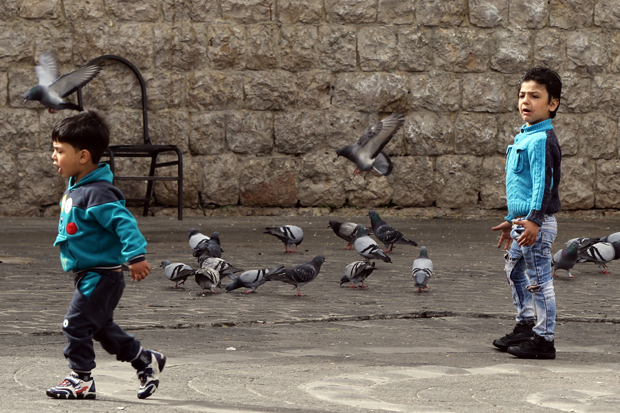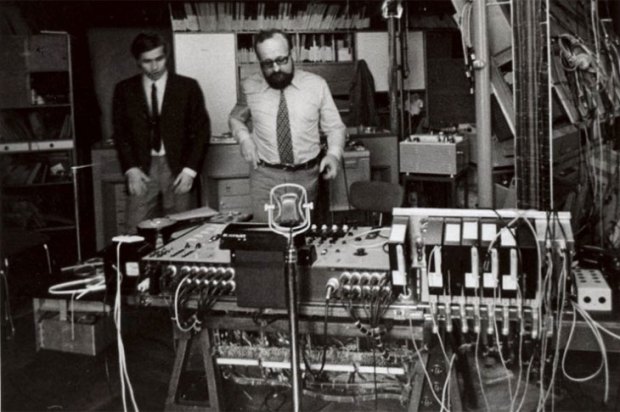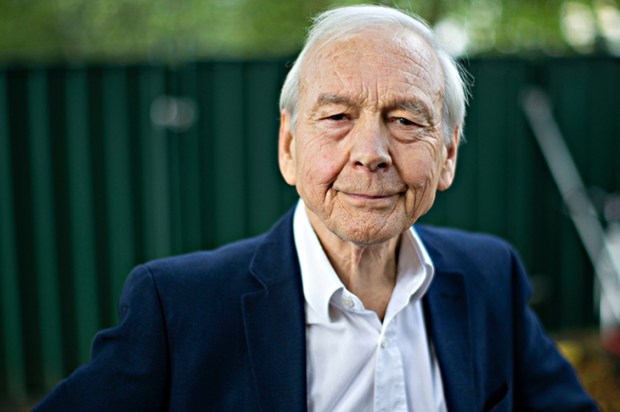Four programmes, four very different kinds of radio, from a classically made drama to weird sonic ramblings, via the best kind of all: first-person narrative, straight to mike. On Syrian Voices this week on Radio 4 (produced by David Prest), Lyse Doucet has been talking to Syrians whose lives have been utterly changed by the war, now passing its five-year mark. On Monday we heard from Sam, a 22-year-old student who lives in the government-controlled area of Daraa and studies English literature at the university. It was here that the uprising began after some students scrawled graffiti on a wall, ‘It’s your turn next, doctor’, calling for their country to be the next in the Arab world to overthrow its government.
There was a very odd disjunction between what Sam was saying and the background sound, which suggested he was sitting in a quiet, almost serene garden, birds twittering noisily. And also between his view of what has happened and the reports we get each night on the news. Sam blames it all on the ‘invaders’ who ‘came from outside’, they were people who were ‘just nothing back then… murderers, thieves’, but through the war, ‘they now became something’. When asked what he thought about the bombing of the country by Russia and Iran, he insisted that these countries were friends of Syria and were only trying to help.
Then, as the birds continued to sing, he told us about the death of one of his friends, who was like a brother to him. They were walking together down the street, talking, about what they might do tomorrow, next month, next year. Suddenly, a stray bullet came out of nowhere, a sniper’s shot. ‘He was down… What the hell happened to him?’ In ten minutes his friend was dead. ‘We lost him…’
Most of Sam’s friends have left Syria but he has no thought of leaving. On the contrary, he says, ‘they regret leaving… What are they doing there?… Syrians should come home. We miss them.’
But how has Sam managed to stay on in Daraa? How is he funding his studies? Where were his family? This, we were not told.
In The Essay on Radio 3, Madeleine Bunting has been asking a question that most of us will have to face at some time or another. What do we mean by ‘care’? What will we expect from care? What will be expected of us?
The driving passion behind her five short talks (produced by David Coomes) is the fear that as a society we have driven ourselves on to the rocks of hard feeling, creating a culture that ‘promotes independence, productivity, achievement, beauty, speed’. The attributes of caring, such as ‘being attentive, gentle, patient, self-effacing’, have become ‘countercultural’, and those involved in caring (most often women) are not appreciated for the work they do.
This was radio at its thought-provoking best, challenging, because it required us to listen to a single voice for a quarter of an hour, no sound effects, no entertaining illustrations, while presenting us with an alternative viewpoint. Why are we brought up to get on in life yet given very little teaching on how to fulfil that most human of functions, to care, even if this means to be willingly ‘present with suffering’?
Jean Rhys’s novel Wide Sargasso Sea could rather clumsily be described as a prequel to Charlotte Brontë’s Jane Eyre, conjuring up the life of the mad woman in the attic, Mrs Rochester, before she arrived in England from the West Indies. Yet of course, as only Rhys could achieve, it’s so much more than that, disturbing, spooky, hallucinatory, while creating a story that’s so vivid, so compelling it’s unnervingly believable if always shadowy, the events hinted at rather than fully explained. Radio 4’s dramatisation on Saturday afternoon (by Rebecca Lenkiewicz), with original music by Lucy Rivers and directed by Helen Perry, captured the unsettling atmosphere of Rhys’s novel, creeping insidiously into the mind and refusing to shift, as Antoinette Rochester, the Creole heiress, steadily loses her mind against a backdrop of race riots, domestic violence and bewitchment.
We never did discover why the soundtrack in Saturday night’s Between the Ears on Radio 3 kept repeating ‘Angels are making lace tonight’. But it didn’t matter as Susan Aldworth’s investigation of The Three-Second Rule took us through the brain-scanner looking at what the brain gets up to when it doesn’t have anything to do. The rule suggests that it’s in those three seconds that creativity might reside, when the brain is truly at rest. It might also reflect the average frequency of waves on the most relaxing of beaches, the essential rhythm of life. Count to three and imagine what you can do in that time. Some say it’s all the time you need to decide whether you like someone or not. Others that it’s best to make decisions in those moments, guided by instinct rather than using the logical, rational tools that come into force after those precious three seconds. The programme was shaped by three-second rhythms and by its end I did feel strangely calmed and wanted to listen all over again.
Got something to add? Join the discussion and comment below.
Get 10 issues for just $10
Subscribe to The Spectator Australia today for the next 10 magazine issues, plus full online access, for just $10.
You might disagree with half of it, but you’ll enjoy reading all of it. Try your first month for free, then just $2 a week for the remainder of your first year.














Comments
Don't miss out
Join the conversation with other Spectator Australia readers. Subscribe to leave a comment.
SUBSCRIBEAlready a subscriber? Log in